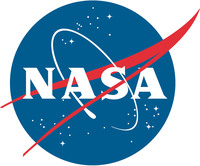AI, machine learning, and robotics are fundamentally changing healthcare, says Johnson & Johnson CEO Alex Gorsky. “One of the most exciting parts of my job right now is to see the technology that’s usually equated with California and the West Coast,” said Gorsky. “Whether it’s AI, machine learning or robotics, you’re seeing it more and more being integrated into healthcare.”
Alex Gorsky, Johnson & Johnson CEO, discusses the reinvention of healthcare via technological innovation in an interview on CNBC’s Mad Money:
AI, Machine Learning, Robotics Integrated Into Healthcare
One of the most exciting parts of my job right now is to see the technology that’s usually equated with California and the West Coast. Whether it’s AI, machine learning or robotics, you’re seeing it more and more being integrated into healthcare. With this remarkable partnership that we have now with Apple where we’re taking this technology built into the iWatch to help detect things like atrial fibrillation or when you get a heart fluttering earlier. We know that there are over 35 million people around the world that suffer from this condition.
If we can detect that earlier we can get them to write medication and we can help them be compliant on these medications over a longer period of time. Ultimately we’re going to save lives. I think it really shows how some of this new technology is coming to healthcare in new, innovative, and unique ways. We couldn’t have even imagined this just a few years ago. We’re talking about algorithms that are built into the watch that are monitoring health in real-time. It can detect these anomalies far before something really manifests itself that the patient’s going to recognize in the terms of symptoms.
Robotics Technology Fundamentally Changing Healthcare
Auris (recently acquired) is another great example of how this technology is fundamentally changing the way we’re thinking about healthcare. Today, less than five percent of surgeries are done with a robot or digitally. In the future, we think that’s going to be significantly greater. What we’re so excited about is just as technology has changed the way that we drive a car, where you pull up your map system or you see that light go on if you start to change lanes, think about that in surgery.
Suddenly, a surgeon can go in preoperatively, utilized imaging to help him or her really navigate their way specifically to the lesion, and they can actually get guidance. We know that’s going to lead to better precision, better outcomes for the patient, and better value overall for the healthcare system.
Healthcare Being Reinvented by Technology
Think of it, for example, with our Auris Monarch Platform which is used for something called bronchoscopy. Now, if you happen to have a lesion or a tumor at a very far out section in your lung, they, of course, would have to go in through minimally invasive surgery to do a biopsy to better diagnose what you have. Imagine we take a tree and turn it upside down and that tree is your lung. We can run this wire down through the system, way out to the outer ends of the leaf. Think of it almost like the acorn.
Once we get there we can do a biopsy or we can use imaging in the future to actually determine what kind of a cancer it is, or we could deliver a therapeutic, perhaps a new kind of immuno-oncology agent to that specific lesion, or we could go ahead and cut it out. Those are the kinds of things are being made possible by this new technology at a company like Auris.




